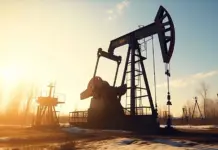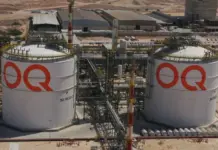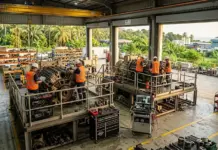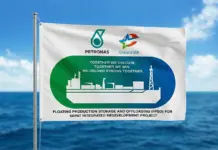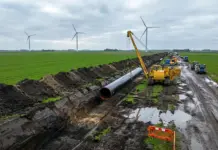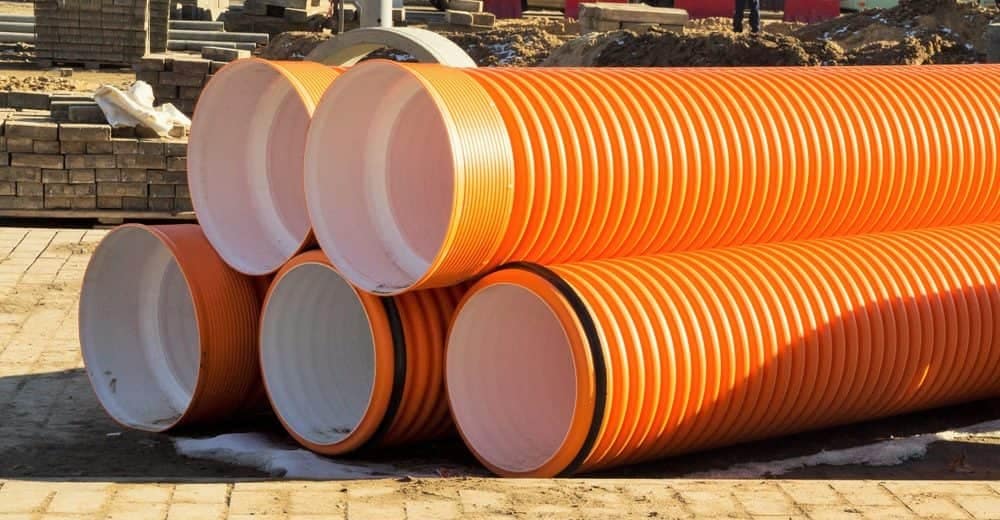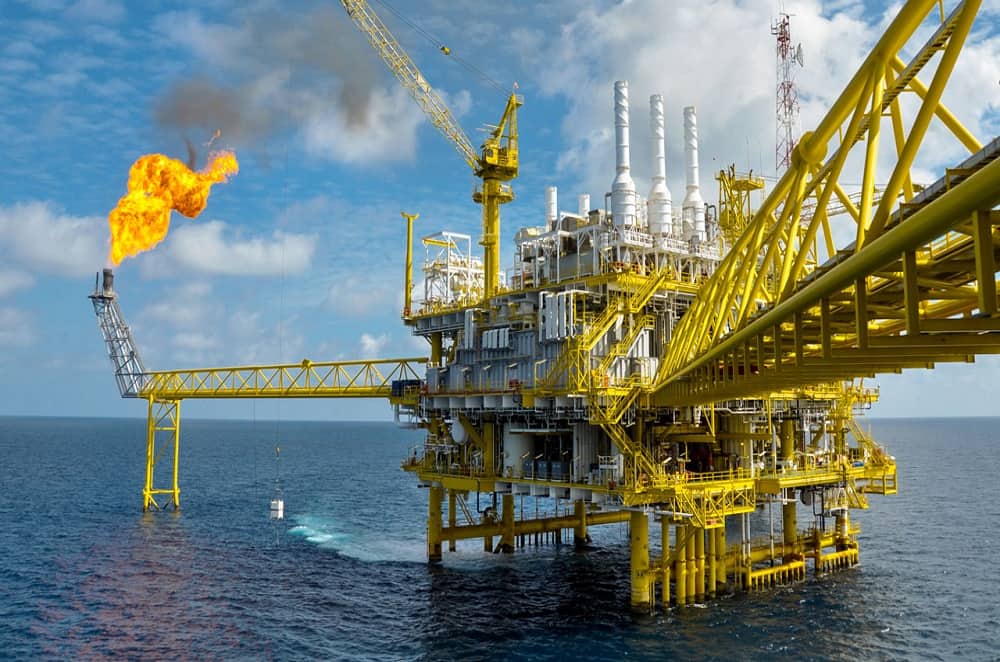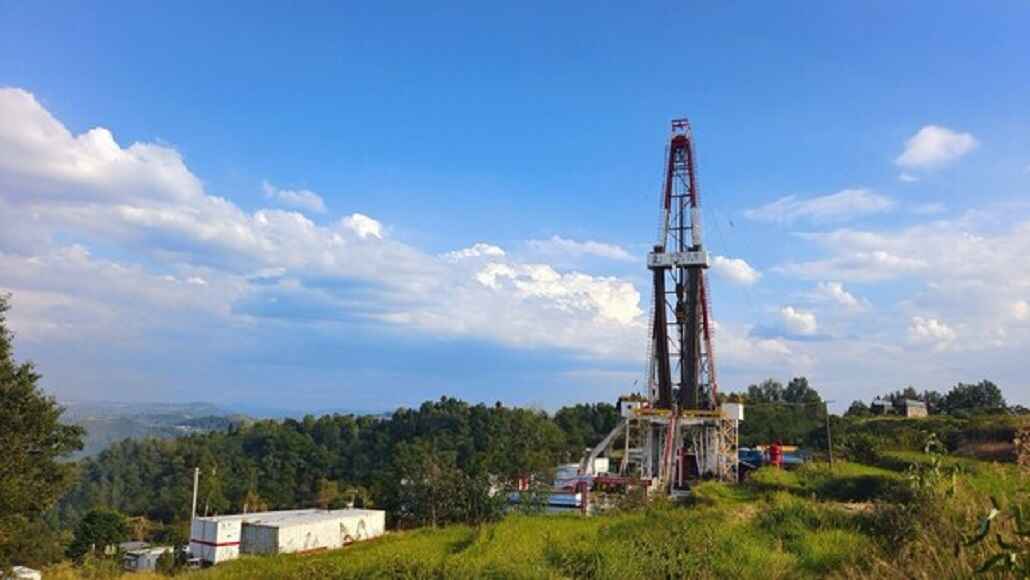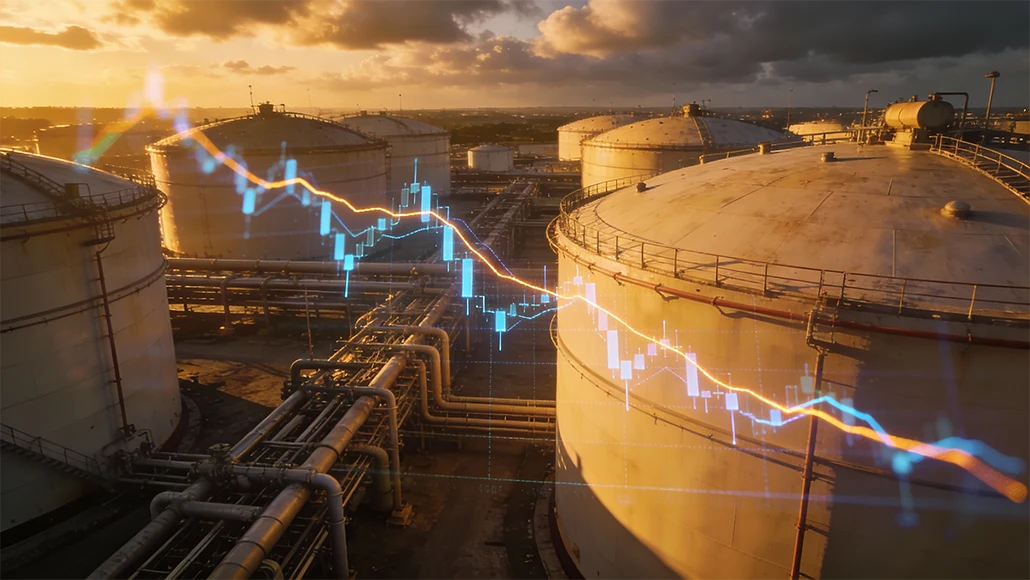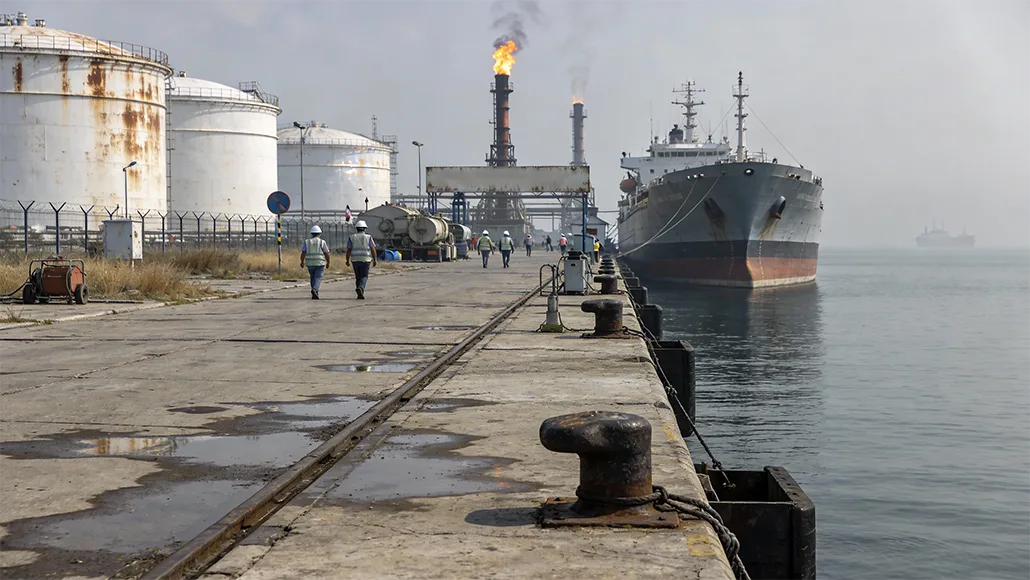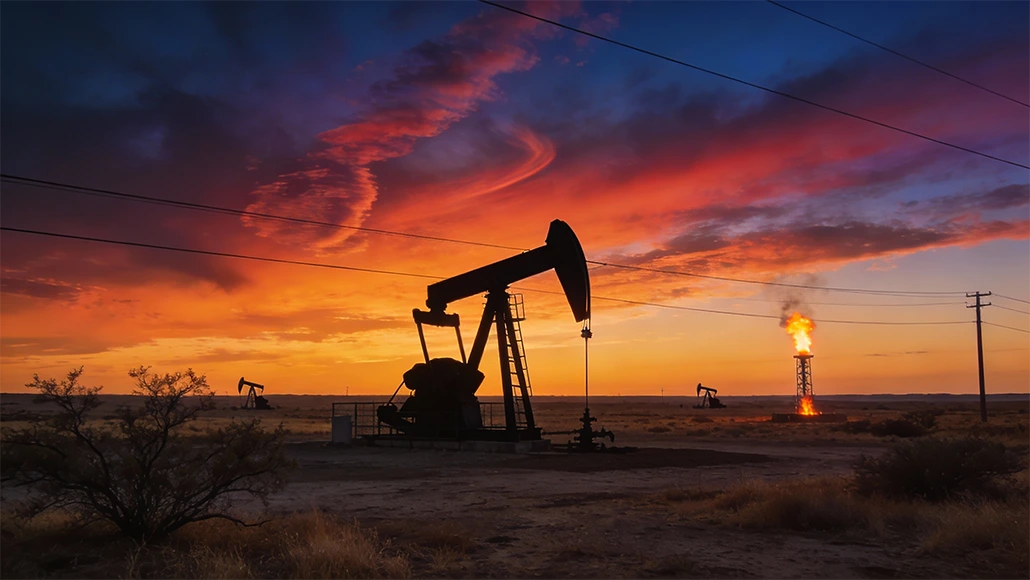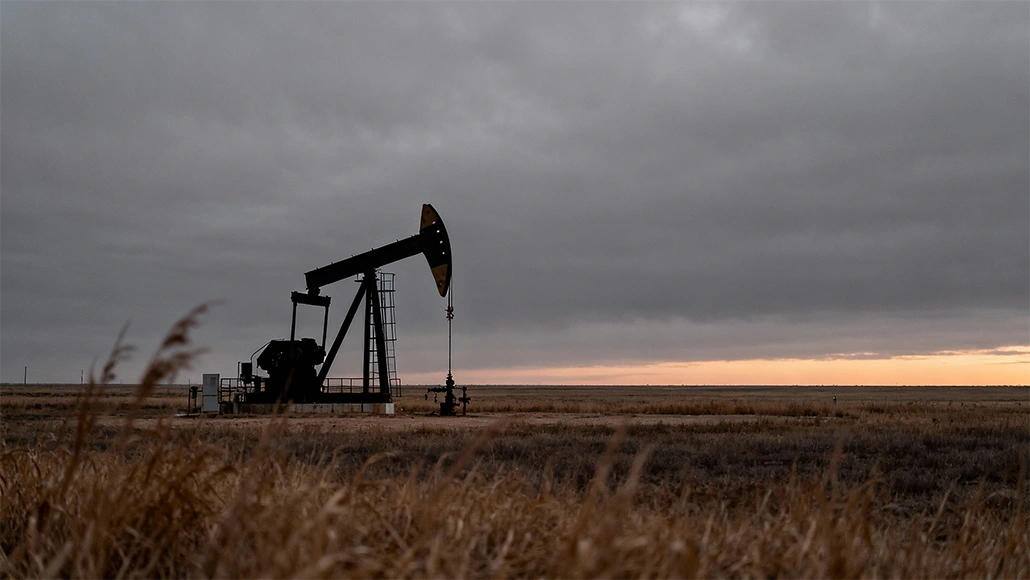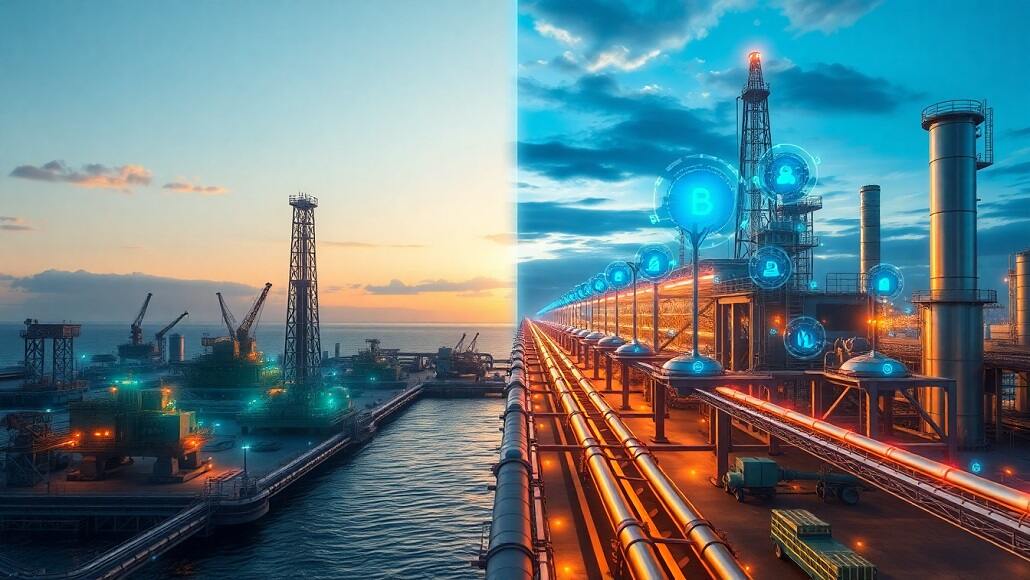Oil and gas in the global energy sector happen to be going through a tectonic shift that is driven by technological advancements. As the world happens to transit toward cleaner as well as more efficient choices when it comes to harnessing energy, traditional oil along with gas operations are indeed embracing a digital revolution. A couple of cutting-edge technologies, such as generative AI along with blockchain, happen to be at the forefront of this invention, therefore completely disrupting traditional workflows along with redefining business levels within the industry. Right from elevating the operational efficiency to making sure that the data transparency in addition to the security gets maintained, these digital technologies are not just any complementary tools but at the same time are the transformative forces that are all set to shape the future of oil and gas.
Oil & Gas role of Generative AI
Generative AI, which is often seen as the next big leap when it comes to artificial intelligence, is indeed making waves across the oil and gas sector by helping unprecedented levels of automation along with optimization. By way of the creation of productive models, generative AI happens to be revolutionizing everything right from exploration to production. When it comes to the upstream sector, the usage of AI algorithms has enabled companies to evaluate seismic data with incredible precision, thereby decreasing the time as well as costs that are associated with identifying any kind of drilling locations. As per the report by McKenzie, AI applications when it comes to exploration can cut expenditure by almost 20% and at the same time prominently enhance the success rate of the new wells.
In addition to this, generative AI is also being rolled out in order to optimize reservoir management. By way of stimulating behavior within different conditions, AI systems can enable the engineers to maximize their oil recovery but at the same time minimize the environmental effect. This is especially very relevant since the public scrutiny when it comes to the environmental footprint of fossil fuel extraction has gone on to intensify by the day.
It is well to be noted that the downstream sector is also benefiting from generative AI by way of enhanced protective maintenance. The systems happen to be capable of evaluating massive data sets coming from sensors that are embedded within the machinery, thereby identifying any potential points of failure much before the expensive shutdowns. This not only improves operational efficiency but also makes sure of worker safety, which is a very critical concern when it comes to high-risk environments such as refineries.
Apart from this, generative AI is also transforming the value chain by helping with real-time demand forecasting. By way of analyzing market trends, geopolitical events, and weather patterns, AI systems can forecast any kind of fluctuations within energy demand, thereby helping the companies to alter their production as well as distribution strategies.
Blockchain is indeed a game changer when it comes to transparency and security
While the part of generative AI may completely focus on optimizing the operations, blockchain technology goes on to address the critical issues of transparency, compliance, and security within the oil and gas industry. It is well to be noted that the sector has for long grappled with effectiveness in its supply chain. Compounded by the dearth of trust as well as data security. Blockchain, due to its decentralized as well as immutable ledger system, is cropping up as the ideal solution when it comes to facing these challenges.
One of the most prominent applications when it comes to blockchain within the oil and gas sector is in supply chain management. Recording every transaction on a ledger that’s tamper-proof, blockchain makes sure that all the stakeholders within the supply chain access the same verified information. This not just reduces the disputes but also elevates the efficiency when it comes to processes like inventory management and logistics.
For example, Vakt, a blockchain-based post-trade platform, has already been adopted by industry giants such as Shell and BP in order to streamline their trading operations. This platform has decreased transaction times from weeks to hours, thereby showcasing its prowess within the sector.
It is well to be noted that compliance along with regulatory reporting is yet another area where blockchain has made a significant effect. Due to rising strict environmental regulations, oil and gas companies happen to be under a lot of pressure in order to offer accurate as well as verifiable data when it comes to their emissions and other metrics. Blockchain helps real-time tracking of these metrics, thereby making sure that companies remain very much compliant while at the same time also showcasing their commitment when it comes to sustainability. Blockchain is also elevating cybersecurity within the sector. Given the crucial nature of oil and gas infrastructure, the sector is a prime target when it comes to cyberattacks. The decentralized architecture of blockchain makes it inherently safer than the erstwhile centralized systems, hence protecting the sensitive data and making sure that operational resilience is maintained.
Generative AI and Blockchain in Oil and Gas sector: The Synergies
While both generative AI and blockchain in Oil and Gas sector provide very distinctive benefits, their actual potential lies in their combined application. Both of these technologies can create a digital environment that happens to address operational efficiency along with data integrity. For instance, when it comes to predictive maintenance, AI systems can evaluate data from machinery sensors to identify potential issues.
This data can very well be recorded on a blockchain in order to be sure of its authenticity and offer an immutable record when it comes to compliance purposes. Similar to this, in supply chain management, artificial intelligence can optimize inventory levels along with logistics, whereas blockchain makes sure that transparency is maintained and thereby decreases the risk of fraud.
The blend of these technologies is also paving the path for innovative business models. Smart contracts, which are powered by blockchain and implemented automatically by way of AI algorithms, are helping real-time settlements when it comes to trading operations. This decreases the requirement for intermediaries, thereby increasing the transaction speed and, of course, cutting the costs.
What are the challenges and the future implications?
In spite of their massive potential, the generative AI and blockchain in oil and gas sector is not without challenges. Their high execution costs and requirement for specialized expertise are indeed a major barrier, especially for smaller companies. Moreover, the energy-intensive nature when it comes to blockchain technology raises steep questions about its environmental effect, which could even offset some of the sustainability benefits it goes on to offer in the long term.
And then there are regulatory hurdles, which also pose a lot of challenges. As these technologies go on to evolve, there is indeed a pressing requirement for absolute and transparent regulations in order to govern their usage within the oil and gas sector. Without any kind of framework, their overall adoption is bound to get hindered.
But industry is already taking its steps in order to address these challenges. Collaborative initiatives such as the Open AI Energy Initiative (OAI) look forward to democratizing access when it comes to technologies, thereby making them more accessible to companies of all sizes. In a similar way, efforts are also put in order to develop more energy-efficient blockchain systems like the ones that are based on proof of stake rather than proof of work algorithms.
Conclusion
The journey right from fossil to digital is not just technological evolution; it is a fundamental shift in how the oil and gas sector operates. The generative AI integration along with blockchain is helping companies to pass through the intricacies of modern energy demands. While at the same time, stay competitive in a landscape that is changing really fast.
As these technologies go on to mature, their effect is going to extend beyond functional improvements in order to redefine the sector’s relationship with innovation and sustainability. For companies that are willing to invest in this kind of digital transformation, the rewards happen to be immense – greater transparency, elevated efficiency, and a robust commitment when it comes to environmental as well as social governance.
In the new era, generative AI, along with blockchain, are not just tools, but they are the architects of a smarter and more sustainable future as far as the oil and gas sector is concerned. By way of making use of their combined power, the industry can transition from being just a symbol of fossil fuel dependency to a leader when it comes to innovation, thereby constructing a way for a world that’s net zero.



